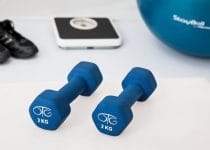Weight Loss Tips And Guide
Embarking on a weight loss journey can seem daunting, but with the right approach, it can be a transformative experience. Here's a comprehensive guide to help you shed those extra pounds and achieve your health goals:
**Set Realistic Goals:**
Don't aim to drop a significant amount of weight too quickly. Strive for a gradual weight loss of 1-2.5 pounds per week. This is a sustainable pace that allows your body to adjust and prevents rebound weight gain.
**Calorie Counting:**
Track your daily calorie intake to ensure you're consuming fewer calories than you burn. Use calorie-tracking apps or consult a registered dietitian for personalized advice. Focus on nutrient-rich foods like fruits, vegetables, whole grains, and lean protein.
**Hydrate Adequately:**
Drinking plenty of water not only keeps you hydrated but also helps suppress hunger and boost metabolism. Aim for eight glasses of water per day or more if you're exercising.
**Move More:**
Physical activity is essential for weight loss. Engage in regular exercise, aiming for at least 150 minutes of moderate-intensity exercise per week. Choose activities you enjoy, such as walking, swimming, or cycling.
**Sleep Well:**
Getting enough sleep is crucial. When you're sleep-deprived, your body produces more of the hormone ghrelin, which stimulates hunger. Aim for 7-9 hours of quality sleep each night.
**Reduce Stress:**
Stress can lead to emotional eating. Engage in stress-reducing activities like meditation, yoga, or spending time in nature. Find healthy ways to cope with stress instead of turning to unhealthy foods.
**Seek Professional Help:**
If you struggle with losing weight on your own, don't hesitate to seek professional help. A registered dietitian or healthcare provider can provide personalized guidance, support, and accountability.
**Meal Planning:**
Preparing healthy meals in advance can prevent unhealthy choices. Plan your meals for the week, focusing on whole, unprocessed foods. Cook more meals at home to control ingredients and portions.
**Listen to Your Body:**
Pay attention to your body's signals. Eat when you're genuinely hungry and stop when you're full. Avoid distractions while eating and savor every bite.
**Choose Nutrient-Rich Foods:**
Focus on consuming nutrient-dense foods that are high in fiber, protein, and healthy fats. These foods keep you feeling fuller longer and provide your body with the essential nutrients it needs.
**Cook with Herbs and Spices:**
Use herbs and spices to flavor your meals without adding extra calories or unhealthy fats. They can also boost metabolism and reduce appetite.
**Read Food Labels:**
Pay attention to food labels when shopping for groceries. Look for foods that are low in added sugars, unhealthy fats, and sodium. Choose whole, unprocessed foods whenever possible.
**Portion Control:**
Be mindful of portion sizes. Use measuring cups and spoons to ensure you're consuming appropriate amounts. Avoid supersizing your meals and eating directly from large packages.
**Make Gradual Changes:**
Don't try to change everything at once. Start with small, gradual changes that are easier to sustain over time. Gradually reduce calorie intake, increase physical activity, and make healthier food choices.
**Be Patient and Persistent:**
Weight loss is a journey that takes time and effort. Don't get discouraged by setbacks. Learn from them and keep moving forward. Celebrate your successes along the way and stay motivated by focusing on your long-term health goals.


